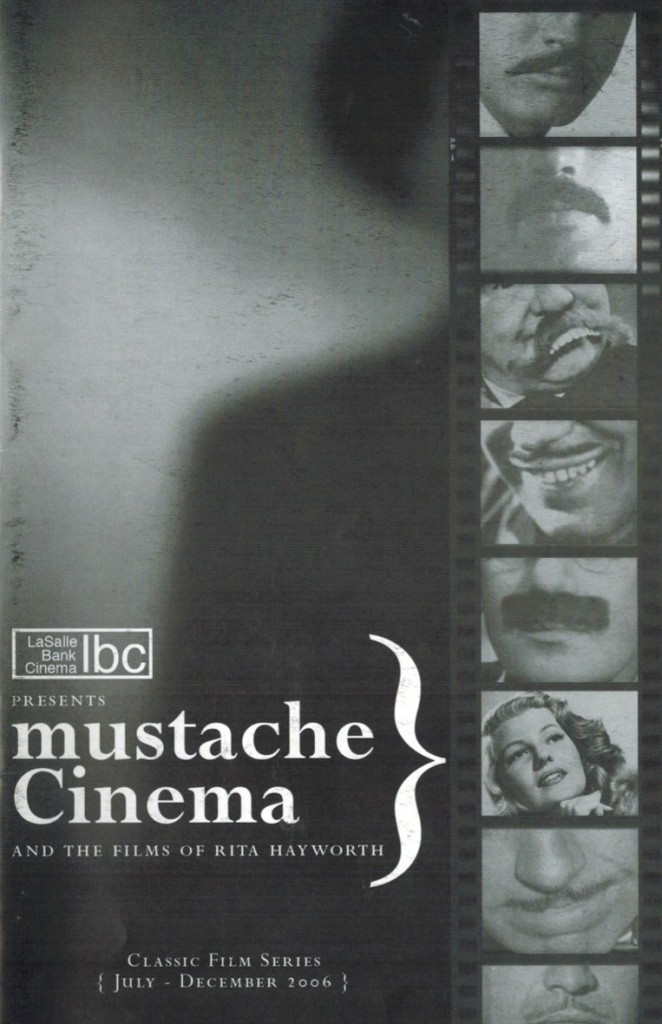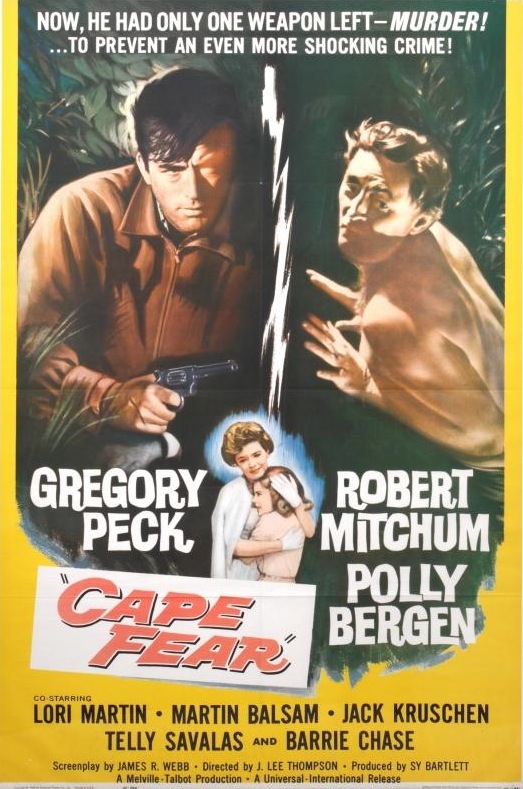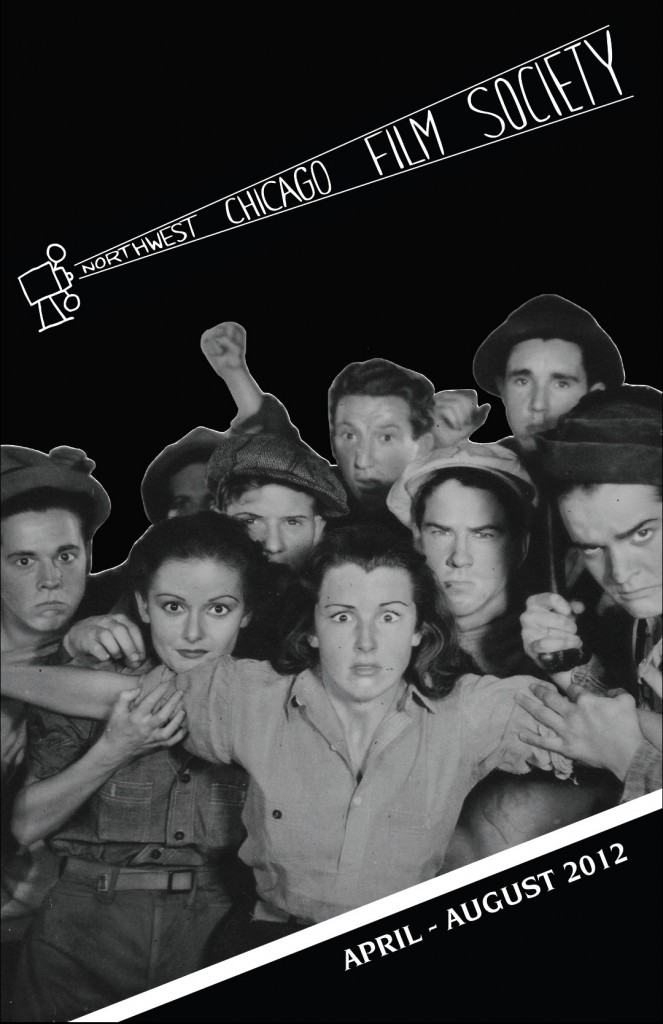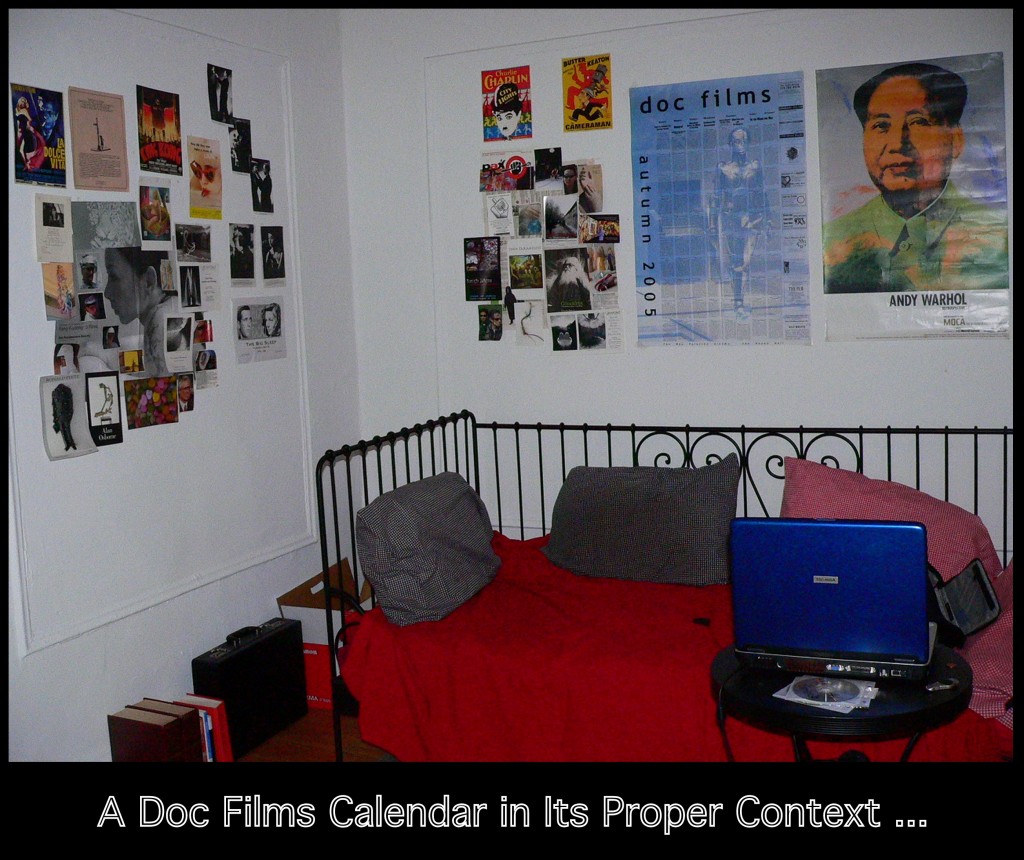The Northwest Chicago Film Society is starting its fifth season this Wednesday with a 35mm print of The Trouble with Harry, a film that has the strange distinction of usually being regarded as ‘minor Hitchcock’ despite the fact that most everyone quite likes it, especially around these parts.
 After that, we’re embarking on a collaborative series with portoluz, a local and like-minded non-profit organization devoted to, in their words, “creating sanctuaries for progressive culture.” Throughout the summer, portoluz will be sponsoring and curating a variety of cultural programming that re-examines the travails of the Depression and its policy legacy—a timely focus given renewed efforts to rollback and eradicate the progressive achievements of the twentieth century.
After that, we’re embarking on a collaborative series with portoluz, a local and like-minded non-profit organization devoted to, in their words, “creating sanctuaries for progressive culture.” Throughout the summer, portoluz will be sponsoring and curating a variety of cultural programming that re-examines the travails of the Depression and its policy legacy—a timely focus given renewed efforts to rollback and eradicate the progressive achievements of the twentieth century.
Though we feel there’s long been a political consciousness running through our programming and this blog, we had no qualms about making this commitment explicit.
But in many ways, the whole idea of running a series as such did represent a shift in what we do, and we want to talk about it this week on the blog.
When the Northwest Chicago Film Society began assembling its first schedule in late 2010 after news of the imminent closure of the Bank of American Cinema, we opted to emulate the programming style of the old calendars. Though there would be an occasional, very loose series on a given calendar in the Bank days—like Michael King and Michael Phillips’s storied Mustache Cinema series in the latter half of 2006—these were the exception rather than the rule. Mustache Cinema is actually an emblematic example: while Gene Kelly in The Pirate, Gregory Peck in The Gunfighter, and Humphrey Bogart in Virginia City all sport uncharacteristic mustaches, no one would ever look at that grouping and conclude it represented a serious critical position rather than an amused, up-front diversion. (To talk about Mustache Cinema at any length here is to undercut its self-evident force and perfection.)
 But the decision to run Northwest Chicago Film Society without a series template—just one film after another, week after week—was a conscious one, born out of something larger than inertia.
But the decision to run Northwest Chicago Film Society without a series template—just one film after another, week after week—was a conscious one, born out of something larger than inertia.
When working as a programmer, there’s a heavy temptation to conflate the final product with the perfect distillation of your own taste and erudition. Programmers instinctively think in terms of double features, even if their venues don’t run double features. “The Devil, Probably is so amazing—and it would make a great pairing with Gus van Sant’s Last Days, wouldn’t it?” or “I really want to program Johnny Guitar, but I can wait until there’s a new print of Rancho Notorious. They would make for a wicked double feature, am I right?” While there’s nothing wrong with these hypothetical match-ups, they beg the question of what the point of programming is in the first place.
Hiring film critics with minimal programming experience has been a fad as of late: witness Elvis Mitchell at LACMA. But the two jobs are quite distinct. While film programming obviously involves opinion and judgment, they are not its reason for being. (Compare this to film criticism in the pre-Internet days, when the lay readership giddily flipped through the Friday paper in hopes of finding a savage review with quotable bon mots.) Programming means bringing films to the public and sustaining the institutions that disseminate them. The audience should emerge with a broader understanding of film history and social history and with some consciousness about the material screened (e.g., a new print from a years-in-the-planning restoration). Knowing where a particular film falls in the programmer’s personal Top Ten Films of 1974 is considerably less important. (It’s also essential to remember that programming has its own unique skill set, which occasionally intersects with criticism, but also equally with theater management, logistics, advertising, fundraising, public relations, preservation, accounting, institutional politicking, and scavenger hunting.)
 Series necessarily impose an overt critical framework on the films being presented. Sometimes it’s a simple and uncontroversial framework, like a director or actress retrospective. (I’ve had a Zita Johann season in my head for a while now.) Such series are easy for the audience to understand and allow the programmer to recede somewhat: when the calendar advertises an Ingmar Bergman retro, hardly anybody gives thought to the programmer. Doesn’t a series like that just program itself?
Series necessarily impose an overt critical framework on the films being presented. Sometimes it’s a simple and uncontroversial framework, like a director or actress retrospective. (I’ve had a Zita Johann season in my head for a while now.) Such series are easy for the audience to understand and allow the programmer to recede somewhat: when the calendar advertises an Ingmar Bergman retro, hardly anybody gives thought to the programmer. Doesn’t a series like that just program itself?
Yes and no. Our friend Jason Guthartz has imported to the film world the useful vocabulary of ‘selected/unselected’ from the jazz percussionist Paul Lovens. When winnowing a long career down to the digestible series, films need to be selected and unselected, with emphases and omissions putting forward an (often-unstated) interpretation.
And yet programmers are not always free to select and unselect. Can you imagine that Bergman retrospective without The Seventh Seal or Persona? Or take a case like Robert Mitchum. Any self-respecting Mitchum series needs to include The Night of the Hunter, and that’s all well and good. The Night of the Hunter is one of the indisputably great films and it could stand to be shown every week without diminishing the experience. And even though it’s a much lesser movie, it would be odd to exclude Cape Fear from our hypothetical Mitchum season, as it’s such an iconic working-out of the whole psychosexual Mitchum case. The noir aficionados expect you to program Out of the Past, too. Pretty soon, you’ve filled up your appointed five or eight or ten slots, but through obligation and convention. For the last slot, you show The Locket and the regulars whisper that you’re making a daring gesture towards the received canon. (Or try a massive, seemingly impartial, comprehensive Mitchum series and that’s another kind of gauntlet gesture: by showing the totality, you’re attaching a certain weight to Mitchum’s body of work.)
To show these movies singly—not in the context of Mitchum but amidst a clutch of other, seemingly random selections—changes the equation considerably. Each stands or falls on its own merits. Anyone for Two for the Seesaw?
But again we’ve fallen into treating film programming as a critical activity: Does this Mitchum selection have integrity on its own terms? Do we have the space to put forward a meaningful summation of his career?
But programming considerations are more often practical. Is the series framework a net positive for the films themselves? For the venue? An Alfred Hitchcock series sells itself. But what about a more obscure auteur like John M. Stahl?
 In our experience, repertory audiences, even dedicated and curious ones, select and unselect with impunity. You read through an extensive calendar and can’t possibly attend everything. You make choices and series help facilitate those choices. You discriminate. You’ve never heard of that director. You don’t like Westerns. You’re tired of depressing films about immigration or alcoholism. You’re enrolled in a class at the local Alliance Française and gravitate towards French-language films this month.
In our experience, repertory audiences, even dedicated and curious ones, select and unselect with impunity. You read through an extensive calendar and can’t possibly attend everything. You make choices and series help facilitate those choices. You discriminate. You’ve never heard of that director. You don’t like Westerns. You’re tired of depressing films about immigration or alcoholism. You’re enrolled in a class at the local Alliance Française and gravitate towards French-language films this month.
To call these decisions ‘prejudices’ may sound harsh, but that’s what they are, reasonable or not. You look at the series and make a snap judgment about it before getting down into the weeds of the films themselves. The individual capsule might be a beautiful sell job, but it’s irrelevant if you check out before reaching it.
We tend to prefer the non-series approach for this reason. Without guideposts, everyone has to read about each film before jumping to conclusions. We try to use our capsules to make the case in multiple registers. You might not like Westerns, but we don’t spend a preponderant amount of space describing The Halliday Brand in those terms. It’s also a political allegory, a terrific Ward Bond vehicle, an impressive low-budget triumph for Joseph H. Lewis.
Series also tend to bring about a certain fatigue. Even if you do like Westerns, do you really want a straight diet of them for a whole month or two? Some folks would be very interested in a Japanese New Wave retrospective but can’t pencil in twelve successive Thursday evenings because, unlike programmers, they have lives and commitments outside the cinémathèque. Does the series cannibalize or intimidate the audience?
To be sure, there are many pragmatic reasons for pursuing series. When staring at a blank calendar that you’ve been tasked with filling, there’s a certain efficiency in thinking in series terms, rather than coming up with twenty one-offs. In some situations, series are a necessity: a foreign archive or consulate is more likely to devote time and energy to helping a venue scrounge up prints, rights, and guest speakers in a series context. The series represents a buy-in for all parties involved.
Of course, series aren’t always so clear-cut. The more conceptual outings—freed from personality, genre, or period—walk a very fine line. At their best, such series help us to see more clearly. Some years ago, when Ian Birnie was still at the Los Angeles County Museum of Art, they mounted a series about Hollywood’s representations of psychoanalysis. The usual suspects like Spellbound were there. But Ian also programmed Sleep, My Love—a dreadful Douglas Sirk film with Claudette Colbert in the Gaslight or Suspicion mode. If one were programming a Sirk series or a Colbert series, Sleep, My Love would be unselected during the preliminary rounds. Programmed singly at the Northwest Chicago Film Society, we would have a great number of disappointed patrons. But in the right context, this minor film becomes a major one, a key text in the elaboration of a particular line of argument. (Are we shading into criticism again?) Most importantly, it’s about finding a context where a film is essential and satisfying on its own terms.
 I could cite many other examples: Miriam Bale’s Bluebeard series at Anthology Film Archives, Peter Conheim and Steve Seid’s Southern (Dis)comfort at PFA and the Roxy, Kian Bergstrom’s Impossible Adaptations at Doc Films. All of these drew together films that are otherwise not often programmed. (But none of them is Mustache Cinema either.)
I could cite many other examples: Miriam Bale’s Bluebeard series at Anthology Film Archives, Peter Conheim and Steve Seid’s Southern (Dis)comfort at PFA and the Roxy, Kian Bergstrom’s Impossible Adaptations at Doc Films. All of these drew together films that are otherwise not often programmed. (But none of them is Mustache Cinema either.)
The latitude required to pursue series like these is often dictated by mundane things like the venue’s calendar layout. In the Doc Films example, the calendar itself has been more or less unchanged for the last twenty-five years: a 24”x36” poster with an eight-column, ten-row grid of capsules. Each column represents a series and each row is a week in the academic quarter. It’s a great format for a barren dormitory wall, not so great for reading on the Red Line. If the idea of the series isn’t immediately clear, the reader will skip over to the next column. On Film Forum’s calendar, week-long runs get extensive coverage, but individual films in big series get a single line, if that.
Our favorite repertory house of old, the late Bruce Trinz’s Clark Theater in the Loop, didn’t run series, but produced a grid calendar where every film received a catchy couplet, like this one for The Public Enemy: “He made a career / On killing and beer.”
Generally speaking, the more complicated the series and the more involved the explanation behind it, the less room the designer and editor have for capsules. Add in pictures (especially pictures for every screening) and you’re down to fragments. It’s a trade-off that speaks to a venue’s values.
Luckily, the internet has freed up programmers and designers alike. A short version of a capsule can be edited for the print publication and a longer version can hit the web. Blogs can provide in-depth coverage of a particular film or series without any thought towards word count.
In the case of our collaboration with portoluz, we felt the series framework was productive without imposing too much. The general idea is to look at films of and about the Depression, but the berth is sufficiently wide to include everything from a neglected Fritz Lang-Kurt Weill musical to a cheerfully fascist DeMille pageant. We made a particular effort to minimize series fatigue by varying the tone and genre as much as possible. At best, we hope the films are more legible for being in dialogue with one another. At the same time, we won’t carp if you don’t even recognize the series as such.
